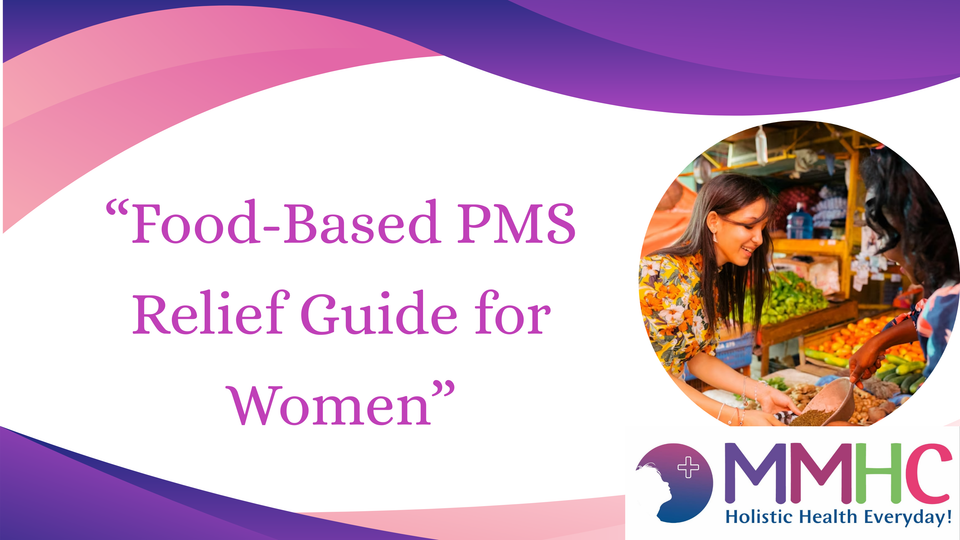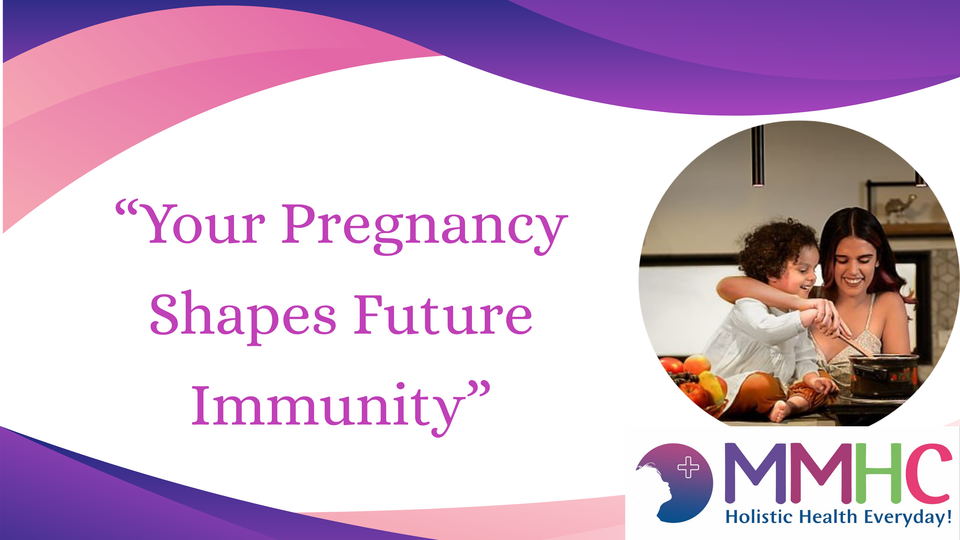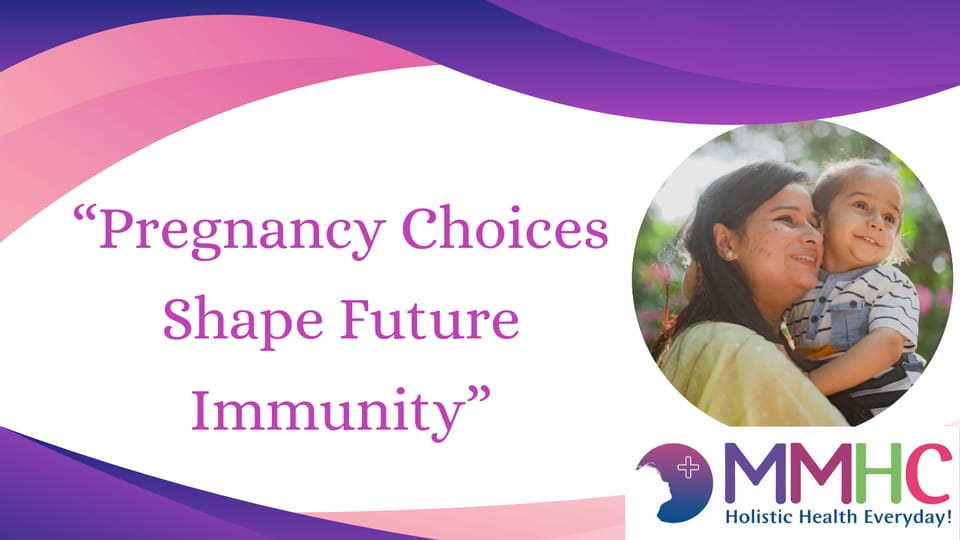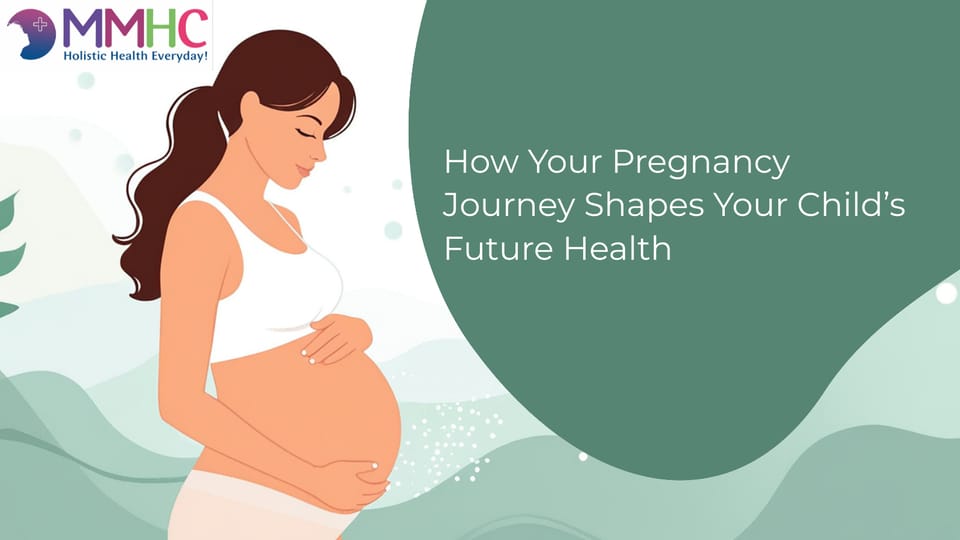Ovarian Aging Decoded: What Every Woman Should Know About Her Biological Clock?
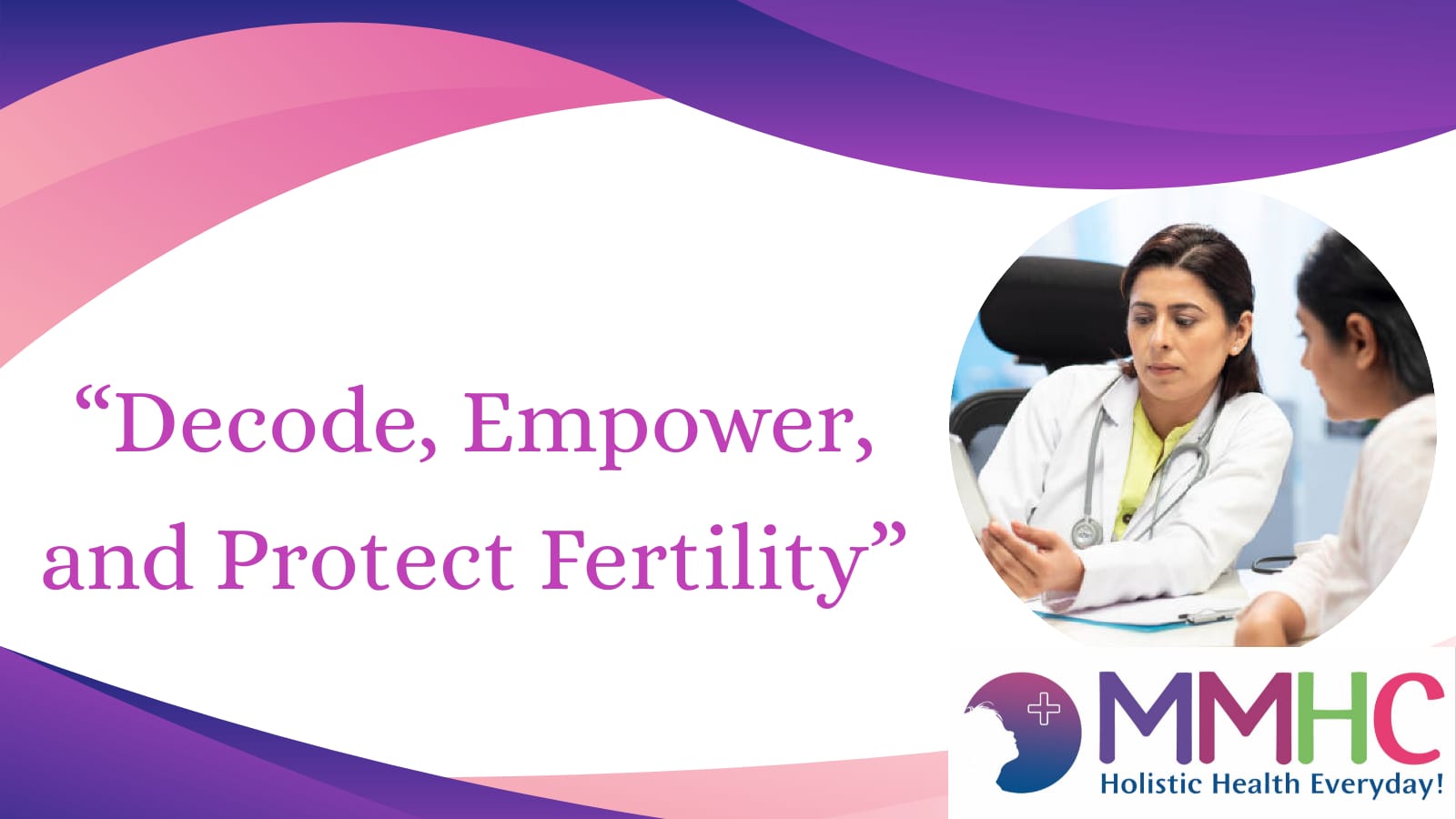
Latest Study Shows That Ovarian Aging Is Not Merely a Depletion of Eggs but Involves Intimate Communication Between the Brain, Ovaries and Genes. Knowing how this works can help you take decisions for your reproductive health.
The Modern Woman's Dilemma: 'Time and Fertility'
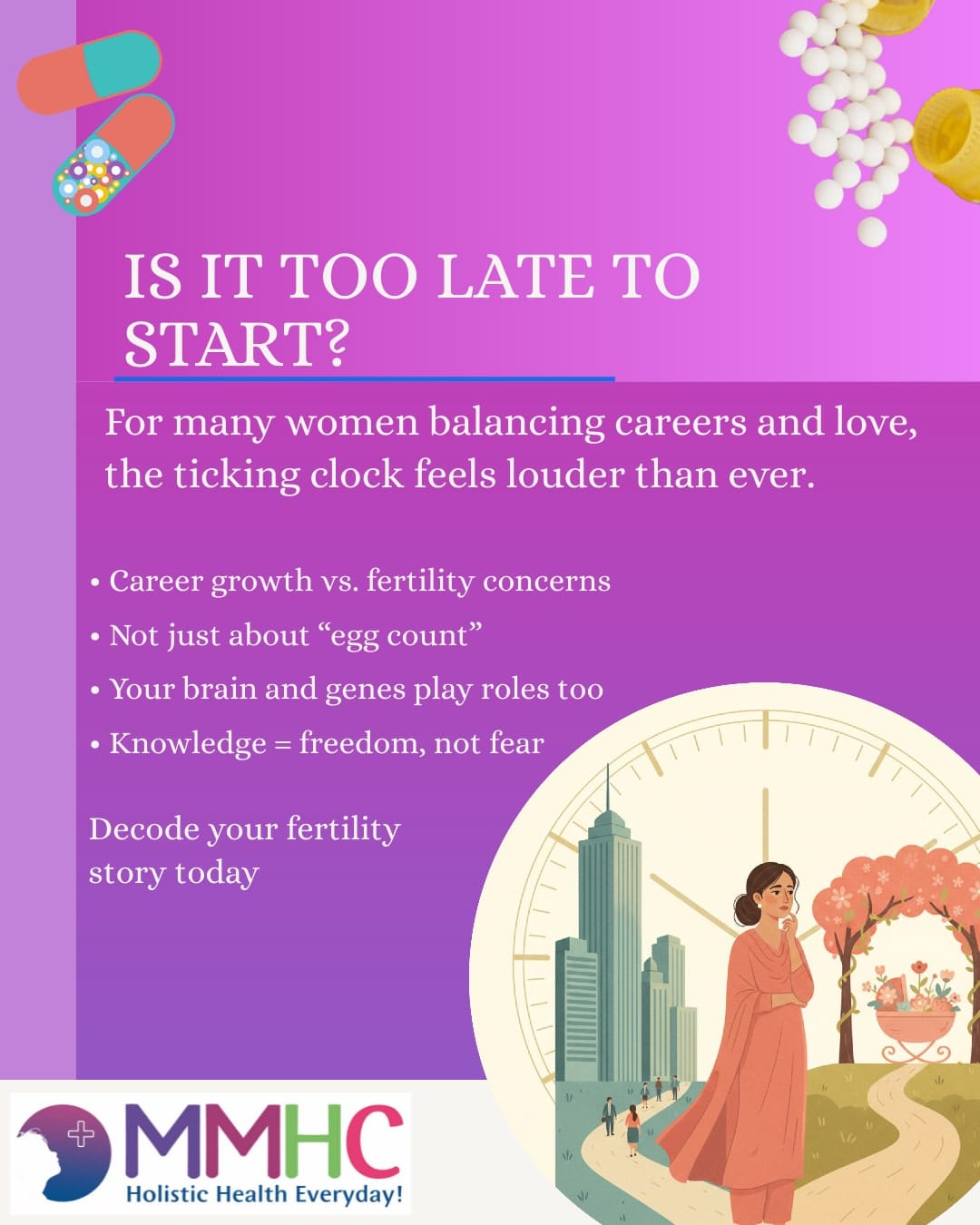
Imagine Priya, a 38-year-old marketing executive in Mumbai. Her career is on the rise, she's finally found a supportive partner, and now the murmurings about starting a family are getting louder. Yet a lingering worry remains: "Is it too late?" This is a familiar scene for many urban Indian women, who are busy chasing career goals, educational pursuits and looking for the right partner to settle down with before they think about motherhood. The unrelenting pace of Mumbai, long working hours and the emotional load of the 'biological clock' can be a bit too much. Although most of society's attention is on the reducing number of eggs, the biology of ovarian aging is much, much more complex, and it involves a subtle interplay between your brain, your ovaries, and even your genetic makeup. Understanding how this biology works allows you to take an informed, proactive approach to your reproductive future through comprehensive well woman care.
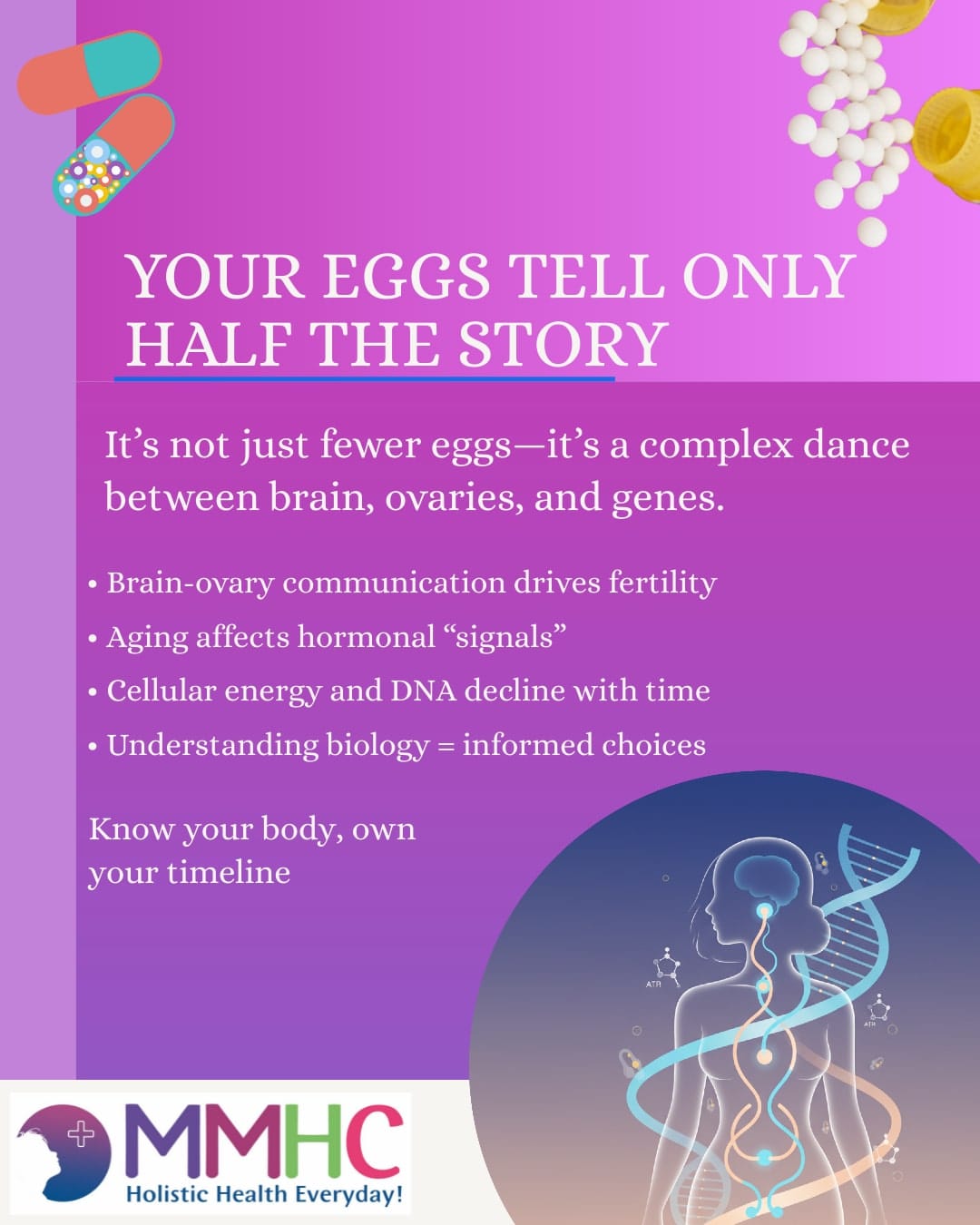
Understand the Intricate Science of Ovarian Aging
The story of female fertility and age was oversimplified for years: women are born with a set number of eggs, and that number dwindles over time. While that's true, recent studies have shown that the reality is more complex, and that ovarian aging is an intrinsic-extrinsic multi-layered process. According to a comprehensive review in Human Reproduction Update, ovarian aging involves complex molecular mechanisms beyond simple egg depletion.
At its core, ovarian aging is driven by two main forces:
The Brain-Ovary Connection (Neuroendocrine Changes)
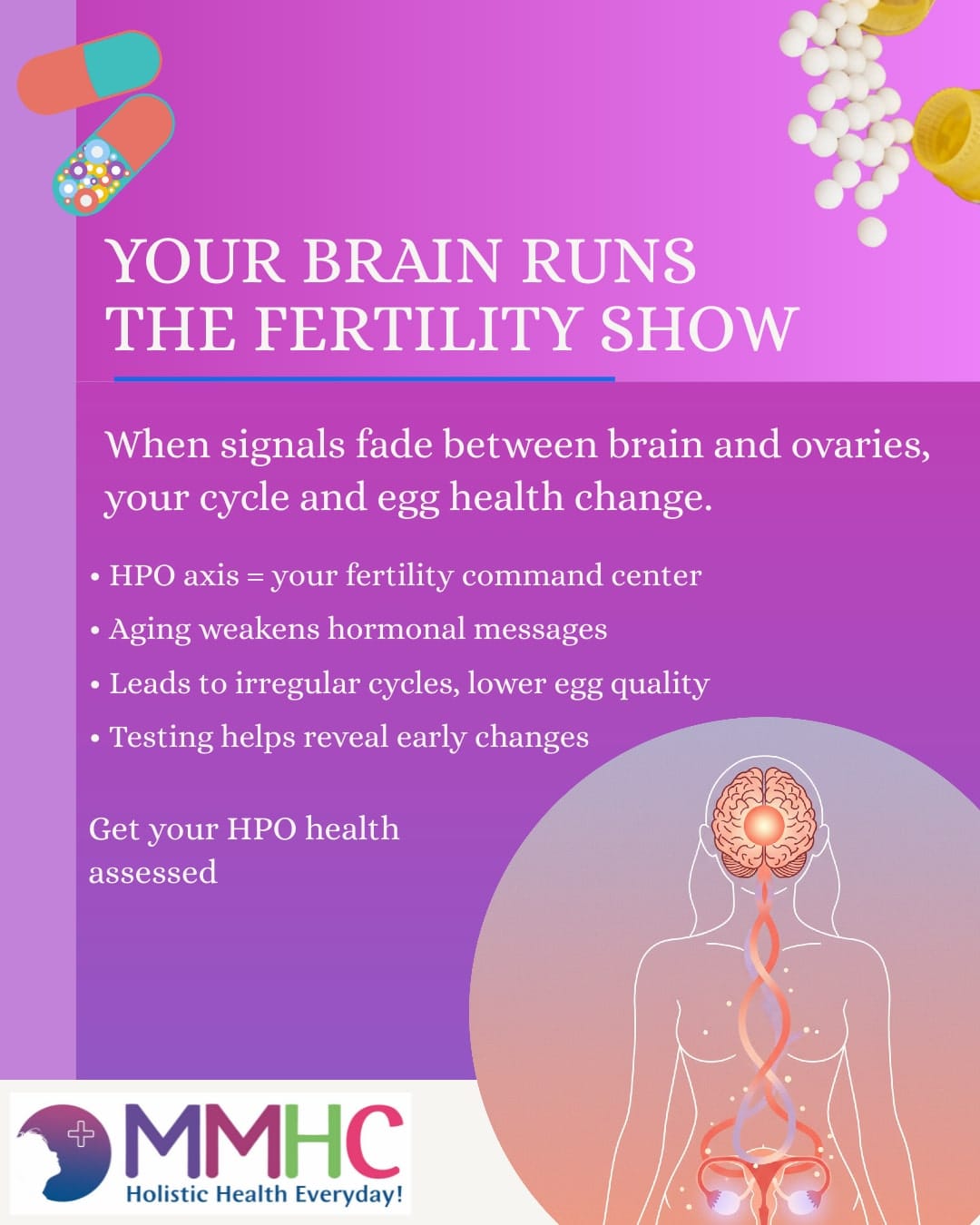
Your reproductive system is governed by a fine communication line known as the Hypothalamic-Pituitary-Ovarian (HPO) axis. Consider your hypothalamus (in your brain) the conductor, telling the pituitary gland what to do, and then that gland tells your ovaries to make hormones and release eggs. As we get older, this signaling can get "a little fuzzy." The brain may not signal as strongly or the ovaries may not listen as well, resulting in irregular cycles, diminished egg quality/quantity. This HPO axis dysregulation plays a key role in the overall aging of ovaries and can be assessed through specialized fertility assessment.
The Ovaries Themselves (Intra-Ovarian Factors)
Beyond the brain's influence, the ovaries themselves undergo significant changes at a cellular level:
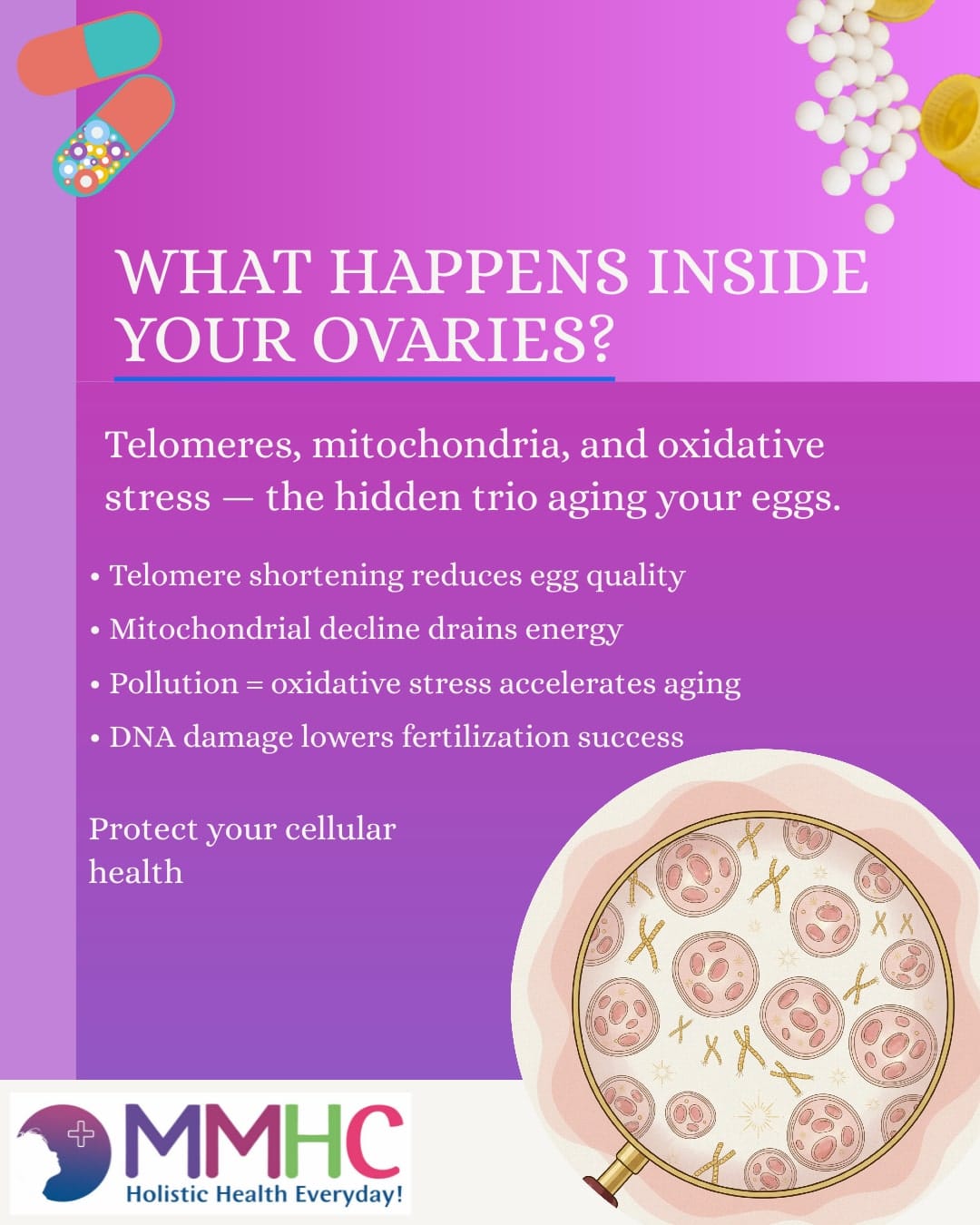
- Telomere Shortening: Imagine the tips of your shoelaces; these are like telomeres on your DNA. They protect your genetic information. With each cell division, telomeres naturally shorten. In ovarian cells, this shortening can lead to cellular aging and reduced egg quality.
- Mitochondrial Decline: Mitochondria are the "power plants" of your cells, generating the energy needed for all cellular functions, including egg development. As we age, mitochondrial function can decline, leading to less energy for egg maturation and a higher chance of developmental errors.
- Oxidative Stress: Our bodies are constantly exposed to free radicals from metabolism, pollution (a significant factor in cities like Mumbai), and stress. These can cause "oxidative stress," damaging ovarian cells and DNA. The World Health Organization highlights how environmental pollutants can accelerate cellular aging. An accumulation of this damage can accelerate ovarian aging.
- DNA Damage: Over time, the DNA within egg cells can accumulate damage, making them less viable for fertilization and healthy embryo development.
The Genetic Blueprint
To complicate matters further, our genes are also involved. Studies, including large genetic studies (Genome-Wide Association Studies or GWAS), have identified certain genetic markers associated with how quickly a woman's ovaries age. That said, because age is the only universal factor, the pace of ovarian aging can be very individual, affected strongly by genetic, and epigenetic (modifications in gene expression, not in the DNA sequence) factors. Research published in Nature has identified specific genetic variants associated with reproductive aging.
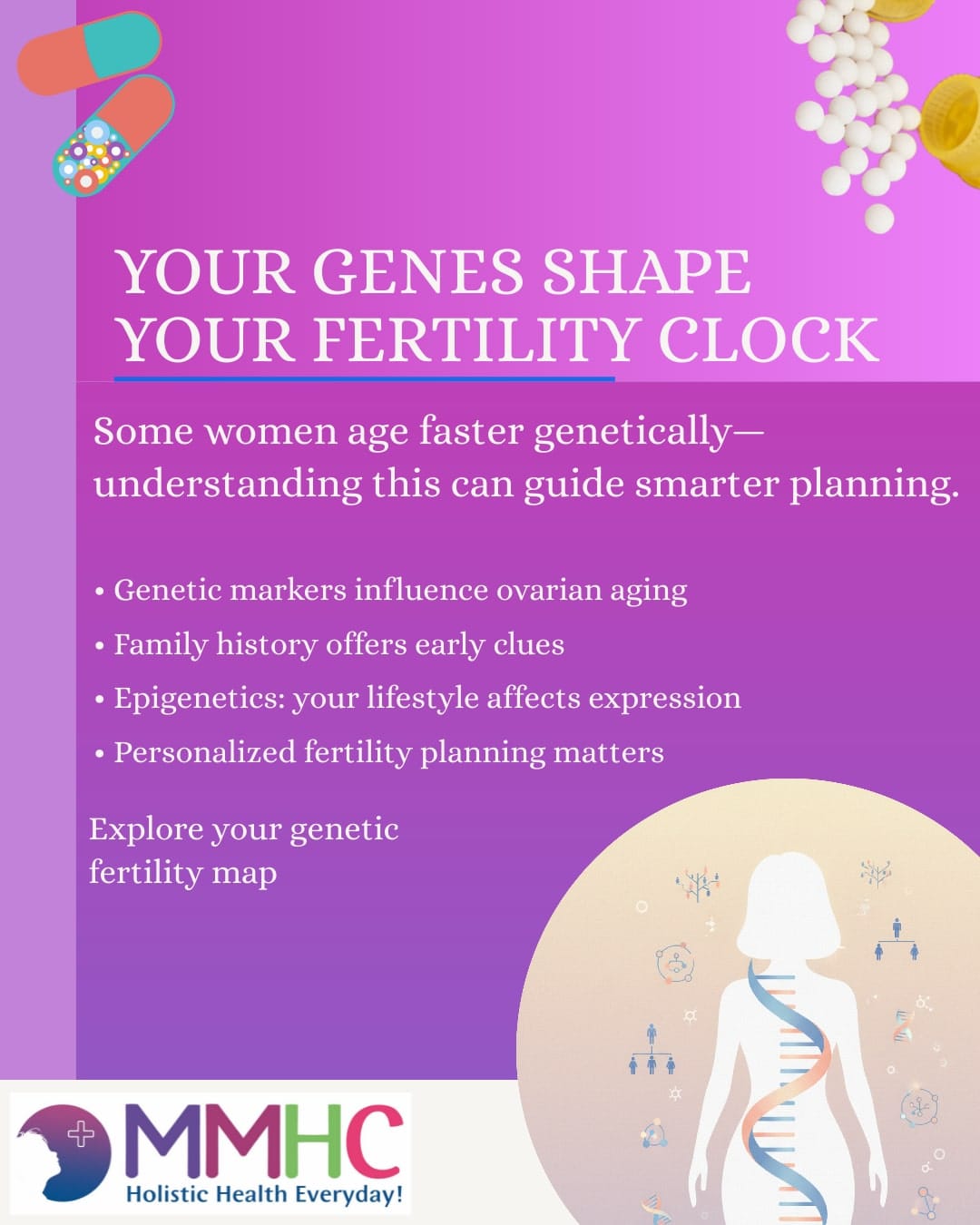
The aging ovary faces a double threat from the brain and within itself.
These intricate mechanisms explain why fertility often diminishes significantly after the age of 35. It's not just about fewer eggs, but also about the quality of those eggs. Older eggs are more prone to aneuploidy, meaning they have an abnormal number of chromosomes. This can lead to implantation failure, miscarriage, or genetic conditions in a baby. While many insights into these cellular processes come from animal studies, the extensive genetic data collected from thousands of women provides strong clues and validates these findings in humans.
Why This Matters for Your Well-Woman Care?
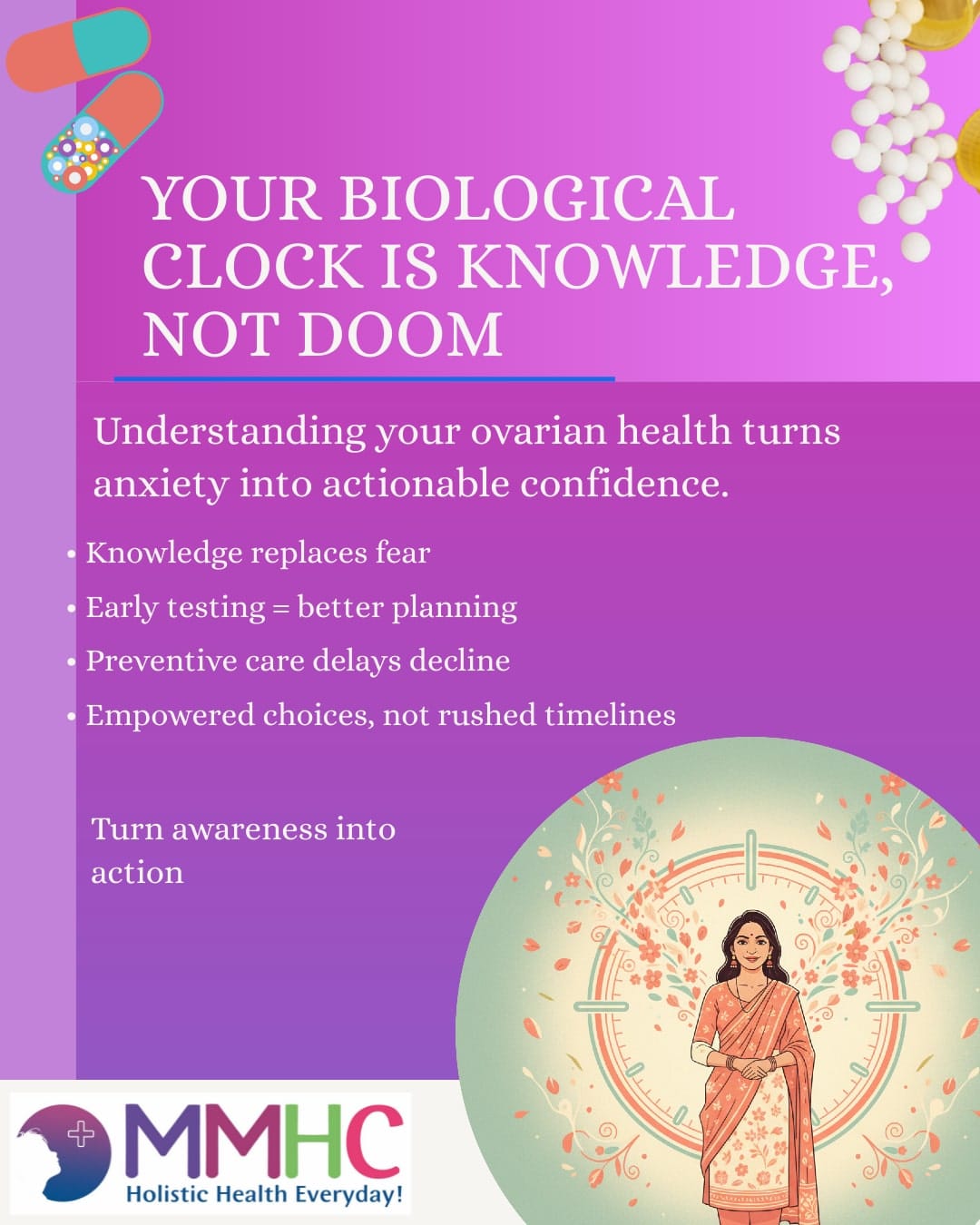
Understanding the science behind ovarian aging isn't meant to cause alarm, but to empower you with knowledge. It shifts the focus from passive acceptance of a "biological clock" to proactive management of your reproductive health. This knowledge is crucial for your well-woman care, especially if you're considering delaying parenthood.
Proactive health measures include:
- Ovarian Reserve Testing: Tests like Anti-Müllerian Hormone (AMH) levels can provide an indication of your ovarian reserve – the number of eggs remaining. While not a perfect predictor of fertility, it offers valuable insight.
- Genetic Counseling: If you have a family history of early menopause or Primary Ovarian Insufficiency (POI), genetic counseling can help assess your risk and guide your family planning decisions. POI, where ovaries stop functioning before age 40, can be influenced by genetic factors, stress, radiation exposure, and autoimmune diseases.
- Regular Gynecological Check-ups: Beyond routine contraception or pregnancy care, regular visits to a fertility expert or gynecologist can help monitor your overall reproductive health and address any emerging concerns early.
Actionable Tips & Advice for Protecting Your Fertility
Armed with this understanding, here are evidence-based recommendations to support your ovarian health and make informed decisions:
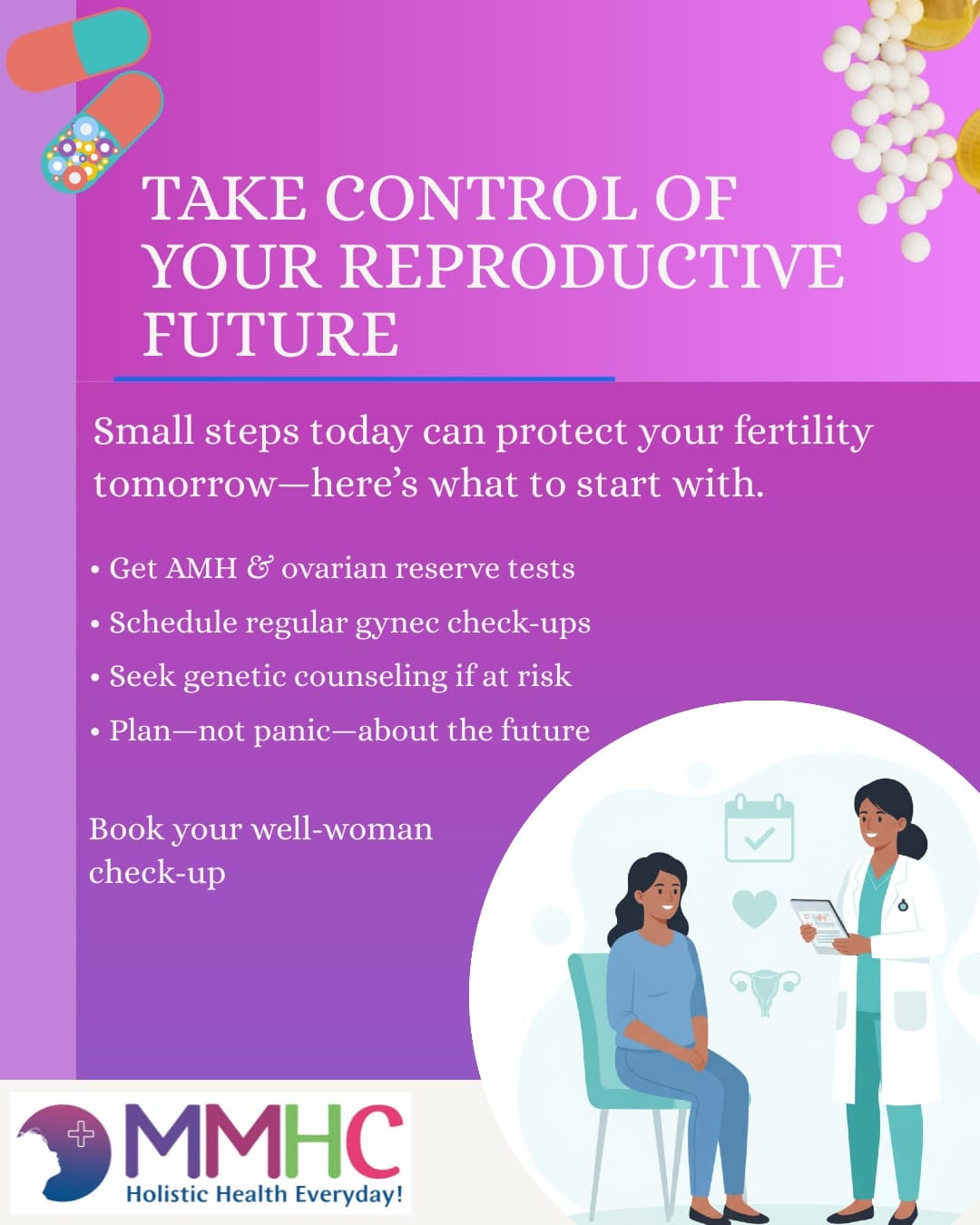
- Monitor Your Ovarian Reserve: After the age of 30, consider discussing ovarian reserve testing, including AMH levels, with your doctor. This can provide a snapshot of your current fertility potential and help you plan accordingly.
- Embrace an Antioxidant-Rich Diet: To combat oxidative stress, incorporate foods rich in antioxidants into your diet. Think colorful fruits and vegetables, nuts, and whole grains. This can help protect your ovarian cells from damage, especially important in urban environments like Mumbai with higher pollution levels.
- Consider Genetic Testing: If there's a family history of early menopause or Primary Ovarian Insufficiency (POI), genetic testing can offer insights into your predisposition. Conditions like Mosaic Turner Syndrome or Fragile X Syndrome are known genetic causes of POI.
- Explore Fertility Preservation Options Early: If you're an urban professional in Mumbai planning to delay motherhood, discuss options like egg freezing with a fertility specialist. The best age to freeze eggs is typically between 25 and 35, as egg quality and quantity are generally higher. This procedure involves stimulating the ovaries to produce multiple eggs, which are then harvested and frozen for future use.
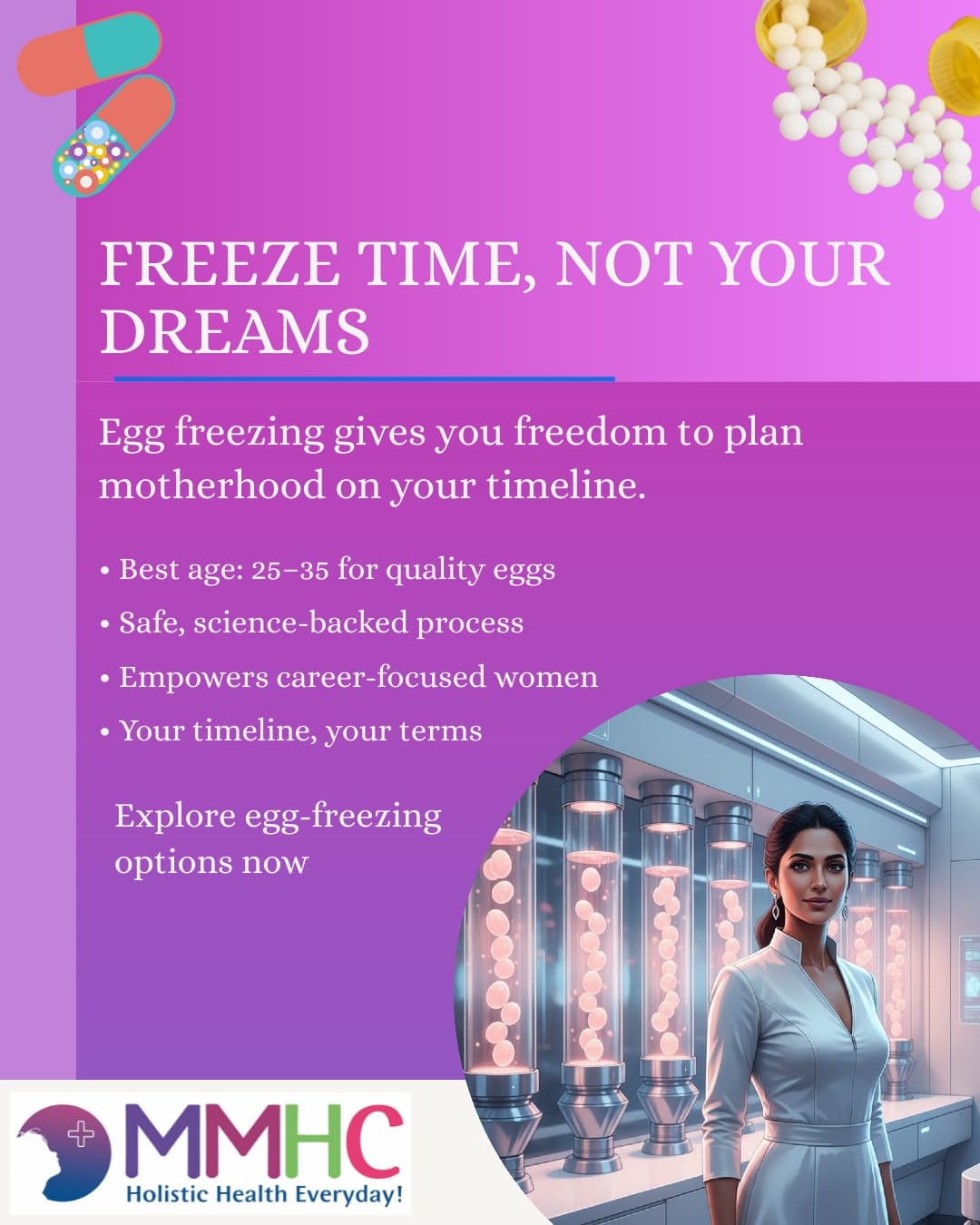
- Prioritize Stress Management and Quality Sleep: Chronic stress and poor sleep can negatively impact your HPO axis function, affecting hormone balance and ovarian health. Practices like yoga, pranayama, and ensuring 7-8 hours of sleep can significantly support your reproductive system.
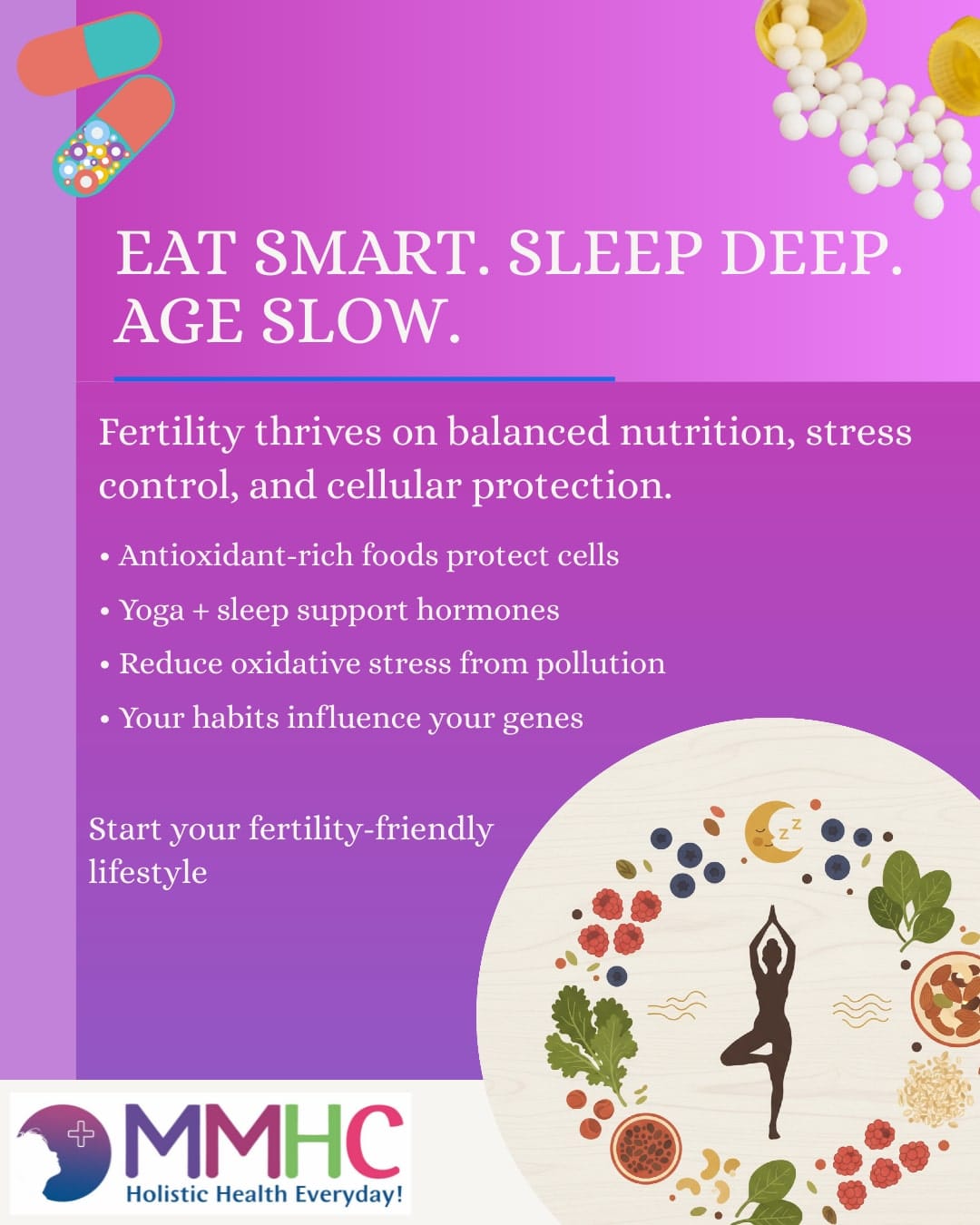
Did you know? Lifestyle changes can influence telomere length and mitochondrial health, directly impacting the cellular aging of your ovaries. A recent clinical study demonstrated that comprehensive lifestyle interventions can positively affect cellular aging markers.
Taking Control of Your Reproductive Journey
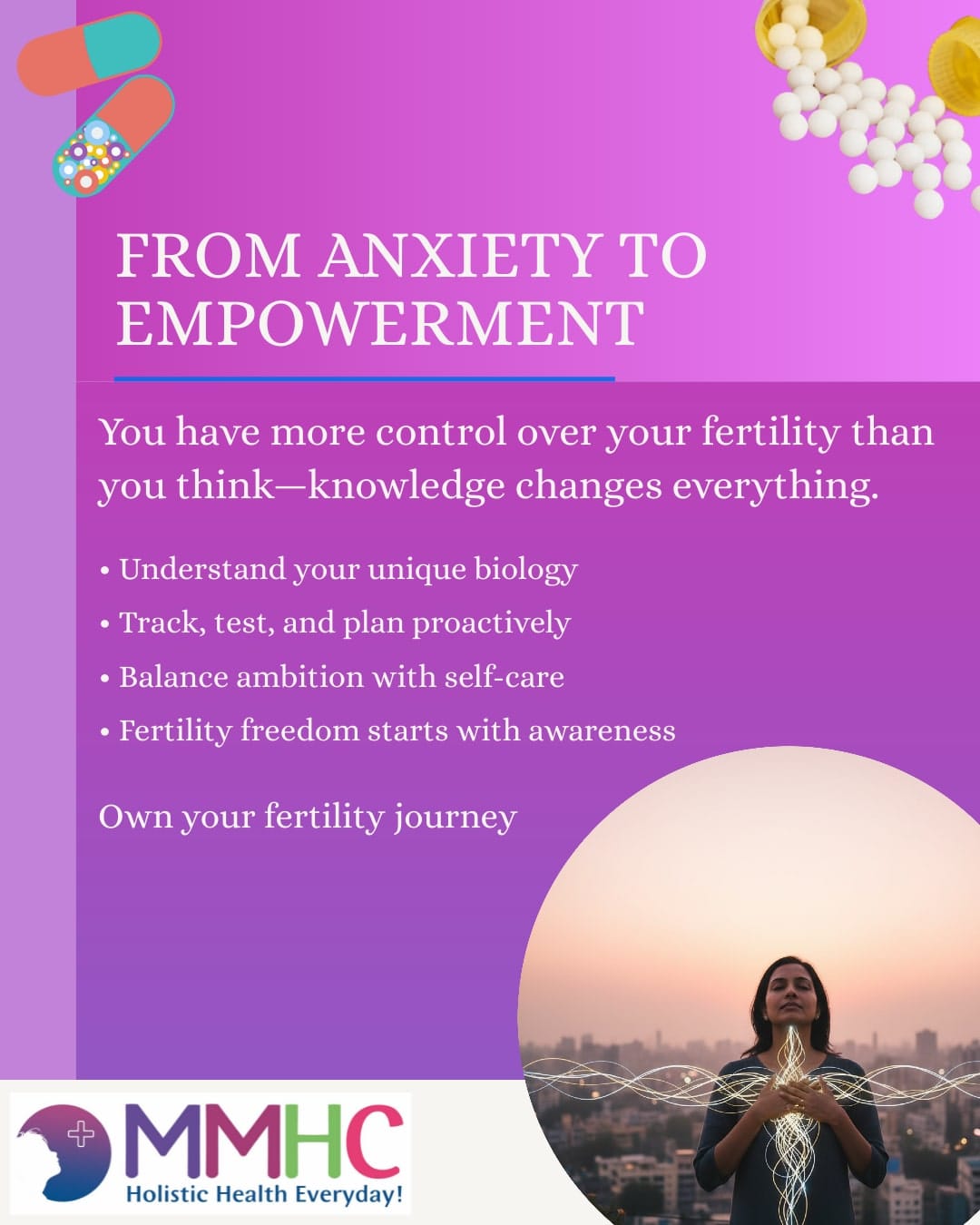
The anxiety surrounding the "biological clock" is real for many women nowadays. However, understanding the complex science of ovarian aging—from the brain's signals to the cellular health of your eggs and the influence of your genes—can transform this anxiety into empowerment. You have more control over your reproductive timeline than you might think.
By embracing proactive well-woman care, monitoring your ovarian health, adopting a fertility-friendly lifestyle, and exploring preservation options, you can make informed choices that align with your personal and professional aspirations. Don't let uncertainty dictate your future. Take the first step towards understanding your unique fertility profile.
We encourage you to schedule a consultation today to create a proactive health plan for you. Visit our website to learn more about our comprehensive services, including fertility assessment, genetic counseling, and discussions about fertility preservation options like egg freezing. Your journey to parenthood, whenever you choose it, deserves informed and compassionate guidance.
